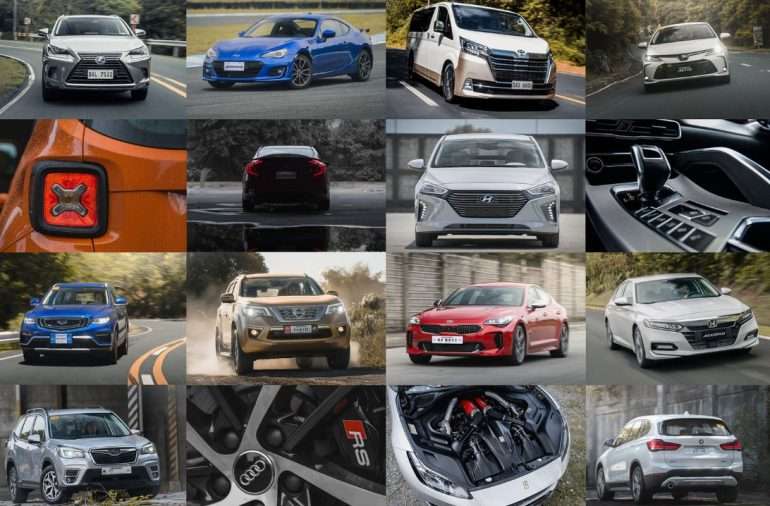electric engine for car
Selecting the correct electric engine is crucial for optimal performance and longevity․ Consider your vehicle’s size, intended use (city driving vs․ long distances), and desired power output․ Research different motor types and their specifications carefully․ Don’t hesitate to consult with automotive experts for personalized guidance to ensure a seamless transition to electric mobility․
Understanding Your Needs
Before diving into the technical specifications of electric motors, take time to honestly assess your driving habits and needs․ This crucial step will guide you towards the most suitable electric engine for your car and prevent costly mistakes․ Consider these key questions⁚
- Daily Commute vs․ Long Journeys⁚ Do you primarily drive short distances within the city, or do you frequently undertake long-distance trips? This significantly impacts the required battery capacity and range․ A smaller battery might suffice for city driving, whereas longer journeys necessitate a larger, higher-capacity battery, potentially increasing the overall cost․
- Power Requirements⁚ What level of acceleration and performance do you expect? A sportier driving style demands a more powerful motor, while a more relaxed approach might allow for a less powerful, more energy-efficient option․ Think about your typical driving style and whether you prioritize speed and acceleration or fuel efficiency․
- Cargo and Passenger Capacity⁚ The weight of your vehicle, including passengers and cargo, directly influences the power needed from your electric motor․ Heavier vehicles require more powerful motors to maintain adequate performance․ Consider your typical load and adjust your engine selection accordingly․
- Terrain and Climate⁚ Do you frequently drive uphill or in challenging weather conditions? Hill climbing and cold weather can significantly reduce the effective range of an electric vehicle․ Choose a motor and battery configuration that can handle these challenges without compromising performance or range․
- Budget and Charging Infrastructure⁚ Electric vehicles come with varying price points, influenced by the motor’s power and the battery’s capacity․ Factor in the cost of installation, charging infrastructure (home charging station, public charging access), and potential maintenance expenses․ A realistic budget is essential to avoid financial strain․
By thoughtfully considering these factors, you can make an informed decision that aligns with your specific needs and preferences, ensuring a satisfying and efficient electric driving experience․
Types of Electric Motors⁚ AC vs․ DC
Electric vehicles utilize either Alternating Current (AC) or Direct Current (DC) motors, each with distinct characteristics impacting performance and efficiency․ Understanding these differences is crucial for selecting the right motor for your needs․
Direct Current (DC) Motors⁚ DC motors are generally simpler in design and control, often preferred in smaller electric vehicles or applications requiring precise speed control at lower speeds․ They tend to offer high torque at low speeds, making them suitable for applications needing significant initial pulling power, such as starting from a standstill․ However, DC motors can be less efficient at higher speeds and may require more complex and potentially less efficient speed controllers compared to their AC counterparts․
Alternating Current (AC) Motors⁚ AC motors, particularly those utilizing advanced technologies like permanent magnet synchronous motors (PMSM) or induction motors, are increasingly dominant in modern electric vehicles․ They generally offer higher efficiency across a wider speed range, resulting in better overall energy consumption and extended range․ AC motors often require less maintenance due to their robust construction and fewer moving parts․ Their higher power-to-weight ratio makes them ideal for larger and higher-performance vehicles․ While potentially more complex in their control systems, advancements in electronics have simplified their integration and management within electric vehicles․
Choosing Between AC and DC⁚ The best choice depends on your vehicle’s specific requirements․ For smaller vehicles or those emphasizing low-speed torque, a DC motor might be sufficient․ However, for larger vehicles, higher speeds, and improved efficiency, an AC motor, particularly a PMSM, is usually the preferred option․ Consult with an automotive specialist to determine which motor type best suits your vehicle’s specifications and your driving needs․ They can help you navigate the complexities of motor technology and ensure compatibility with your chosen battery system and vehicle design․
Factors Affecting Performance and Efficiency
The performance and efficiency of an electric car’s motor are influenced by several key factors․ Understanding these factors is crucial for making informed decisions when choosing a motor and optimizing your vehicle’s overall performance․
Motor Type and Design⁚ As discussed previously, the type of motor (AC or DC) significantly impacts efficiency and power output․ The specific design features within each type, such as the number of poles or the use of permanent magnets, also play a role․ Permanent magnet motors generally offer higher efficiency but can be more expensive․ Induction motors are often more robust and less expensive but might exhibit slightly lower efficiency․
Power Electronics⁚ The efficiency of the power electronics, including the inverter and controller, directly affects the overall system efficiency․ Losses in the power electronics can significantly reduce the motor’s effectiveness․ Advanced power electronics with high switching frequencies and efficient components are essential for maximizing performance․
Thermal Management⁚ Maintaining optimal operating temperatures is crucial for both performance and longevity․ Effective cooling systems prevent overheating, which can lead to performance degradation and potential damage․ The design and efficiency of the cooling system are therefore important considerations․
Operating Conditions⁚ Environmental factors such as ambient temperature and driving conditions (e․g․, uphill driving, high speeds) influence the motor’s efficiency․ Higher temperatures can reduce efficiency, while demanding driving conditions require more power, potentially impacting range․
Battery System Integration⁚ The interaction between the motor and the battery system is critical․ A well-matched motor and battery system will maximize efficiency and range․ Factors such as voltage, current, and power compatibility need careful consideration during the design and selection process․ Consult with experts to ensure optimal system integration․
Maintenance and Longevity
Proper maintenance is key to ensuring the longevity and optimal performance of your electric car’s motor․ While electric motors generally require less maintenance than internal combustion engines, regular checks and preventative measures are still essential․ Neglecting maintenance can lead to premature wear and tear, reduced efficiency, and costly repairs․
Regular Inspections⁚ Visual inspections should be conducted periodically to check for any signs of damage, such as loose connections, worn components, or unusual wear patterns․ Listen for any unusual noises during operation, which could indicate a problem․ A qualified technician should perform these inspections, ideally as part of routine servicing․
Cooling System Maintenance⁚ The cooling system plays a vital role in maintaining optimal operating temperatures․ Regular checks of the coolant level and condition are crucial․ Ensure the cooling system is free from leaks and that the cooling fans are functioning correctly․ Cleaning or replacing the coolant as recommended by the manufacturer is also important․
Software Updates⁚ Many modern electric motors incorporate sophisticated control systems․ Regular software updates from the manufacturer can improve efficiency, address potential issues, and enhance performance․ Ensure your vehicle’s software is up-to-date to benefit from these improvements․
Environmental Protection⁚ Protect your motor from harsh environmental conditions․ Avoid exposing the motor to excessive moisture, dirt, or extreme temperatures․ Regular cleaning of the motor and surrounding components can help prevent premature wear and tear․ Consider using protective covers or coatings where appropriate․
Professional Servicing⁚ Schedule regular professional servicing according to the manufacturer’s recommendations․ A qualified technician can perform thorough inspections, identify potential problems early, and carry out necessary repairs or replacements, extending the lifespan of your electric motor․ Ignoring maintenance can lead to costly and potentially irreversible damage․
Cost Considerations and Return on Investment
The initial cost of an electric motor can be higher than that of a comparable internal combustion engine․ However, consider the long-term cost savings and potential return on investment․ Several factors contribute to the overall cost, including the motor’s power output, efficiency rating, and any associated installation costs․ It’s crucial to weigh these initial expenses against the potential long-term benefits․
Energy Costs⁚ Electricity is generally cheaper than gasoline, leading to significant savings on fuel costs over the vehicle’s lifespan․ The exact savings depend on electricity prices in your region and your driving habits․ Consider using a cost comparison tool to estimate potential fuel savings based on your annual mileage․
Maintenance and Repair⁚ Electric motors typically require less maintenance than internal combustion engines․ This translates to fewer repair expenses over time․ Reduced maintenance needs can contribute significantly to long-term cost savings․
Government Incentives⁚ Many governments offer incentives such as tax credits or rebates to encourage the adoption of electric vehicles․ These incentives can substantially reduce the initial purchase price, making electric vehicles more financially attractive․ Check for available government programs in your area․
Resale Value⁚ Electric vehicles often retain a higher resale value compared to gasoline-powered vehicles, especially as the demand for electric vehicles continues to grow․ This can be a significant factor when considering the overall return on investment․
Total Cost of Ownership⁚ To accurately assess the financial viability, calculate the total cost of ownership, encompassing the initial purchase price, energy costs, maintenance expenses, and resale value․ This comprehensive approach provides a clearer picture of the long-term financial implications․
Environmental Impact⁚ While not directly a financial consideration, the environmental benefits of reducing carbon emissions should be factored into your decision․ The positive environmental impact can be viewed as an intangible return on investment;
Finding a Reputable Supplier and Installer
Choosing the right supplier and installer is paramount for a successful electric engine conversion․ A reputable supplier will provide high-quality components with warranties and excellent customer service․ Thorough research is essential to identify trustworthy suppliers who offer reliable motors and associated parts․
Online Reviews and Testimonials⁚ Begin your search by checking online reviews and testimonials from previous customers․ Look for consistent positive feedback regarding product quality, customer service, and the overall experience․ Pay attention to both positive and negative reviews to gain a balanced perspective․
Industry Certifications and Accreditations⁚ Verify if the supplier holds any relevant industry certifications or accreditations․ These certifications demonstrate a commitment to quality, safety, and adherence to industry best practices․ Look for certifications related to electric motor technology and automotive components․
Warranty and Return Policies⁚ Examine the supplier’s warranty and return policies carefully․ A comprehensive warranty indicates confidence in the product’s quality and provides protection against defects or malfunctions․ Understand the terms and conditions of the warranty before making a purchase․
Installer Qualifications and Experience⁚ Selecting a qualified installer is as crucial as choosing a reputable supplier․ The installer should have experience working with electric motors and possess the necessary expertise for a safe and efficient installation․ Inquire about their experience with similar projects and request references․
Safety Precautions and Compliance⁚ Ensure that the installer adheres to all relevant safety regulations and complies with industry standards․ A qualified installer will prioritize safety throughout the installation process, minimizing potential risks and ensuring the vehicle’s compliance with safety standards․
Communication and Transparency⁚ Choose a supplier and installer who maintains clear and open communication․ They should provide regular updates throughout the process, answer your questions thoroughly, and address any concerns promptly․ Transparency is a key indicator of a reputable business․
Multiple Quotes and Comparisons⁚ Obtain multiple quotes from different suppliers and installers before making a final decision․ Compare prices, warranties, and services to find the best value for your investment․ Don’t solely focus on price; consider the overall quality and reliability․
Post-Installation Support⁚ Inquire about post-installation support and maintenance services․ A reputable supplier and installer will provide ongoing support to address any issues or questions that may arise after the conversion is complete․ This ongoing support is crucial for the long-term performance of your electric vehicle․




